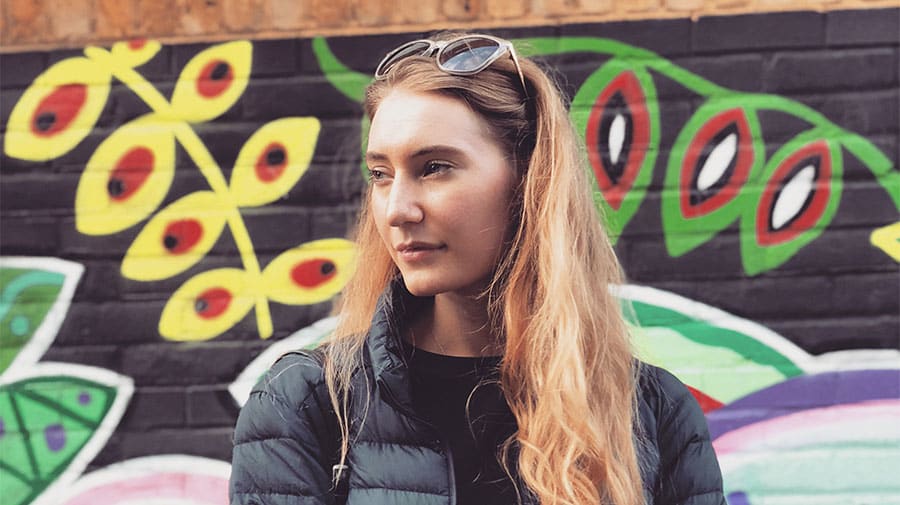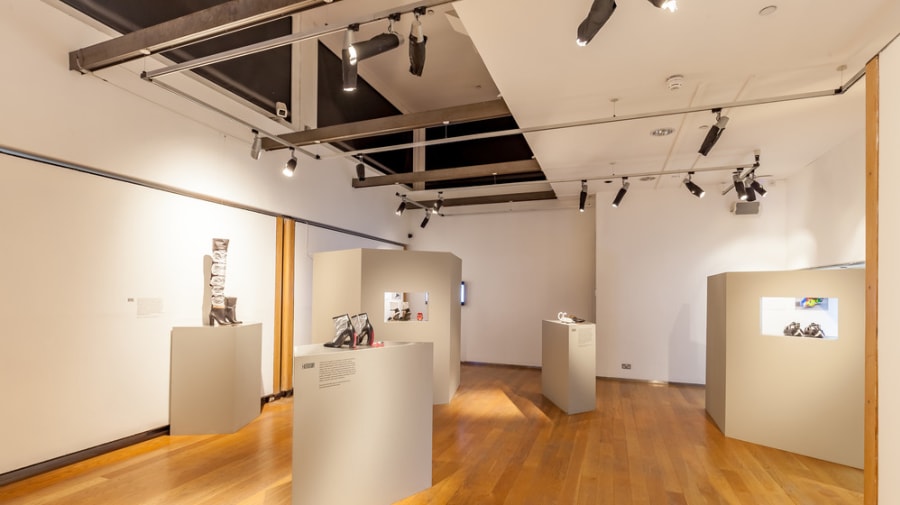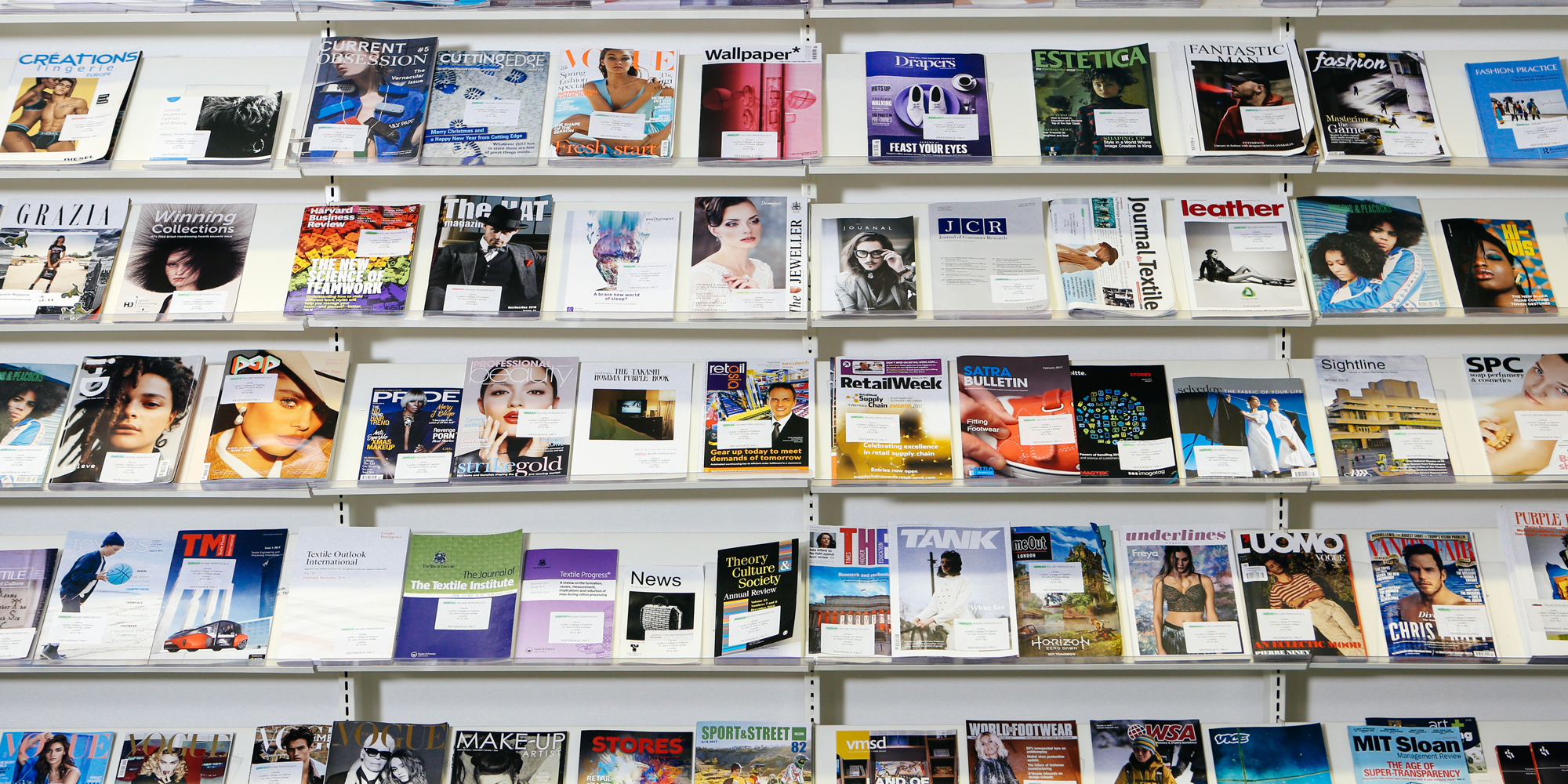There can be a lot to consider when applying to study in a new country. You probably have questions about visas and paying tuition, not to mention the move itself! Originally from Vancouver, Canada, Emily knew she wanted guidance when applying to University of the Arts London (UAL). She contacted Jess Gill, our Canadian Country Manager, who was able to answer Emily’s questions and support her through the application process. Here, Emily shares why she believes this option gave her application a competitive edge and how the MSc Applied Psychology in Fashion course at London College of Fashion helped advance her career in the fashion industry.
Find out more about studying at UAL as a Canadian Student.

The MSc Applied Psychology in Fashion is a unique course - the first Master's course in the world to apply psychology in the context of fashion. Can you tell us a bit about what the course entailed and your experience as a student? Why is this subject area important?
The course entailed so much! We learned about research methods, consumer behaviour, neuropsychology, personality and individual differences, cognition and creativity, the list goes on. The course has in-person lectures as well as at-home study. We had to complete research studies and papers as well as a collaborative unit with peers and an external partner as well.
This course is important because very rarely is the fashion industry examined by a critical, academic lens. It is important for us to do so as there are many areas in the fashion industry that must improve their ways. One large area of opportunity would include sustainability. Most fashion labels categorise sustainability as a nice area for improvement, but not a critical step that must be taken to operate. Fashion students at UAL are taught about sustainability in hopes they will re-enter the industry and champion social responsibility. A psychologically literate person is a great asset to any sector but especially in fashion as the entire industry is looking to understand consumers at such a micro-level.
If a student can understand consumer behaviour and why people buy what they buy, that can be a huge asset to any fashion corporation.
From your experience of the programme, and the new knowledge and skills you have gained, what kind of positions would you say students can secure after graduation?
Any! If you can dream it, it is possible. I am using my educational experience from UAL constantly. I recently sat with our in-house Researcher and Head of Sustainability and discussed what is coming next for Aritzia. It was fascinating to speak with them both about what the company's plans are. Within these conversations, I felt well versed and prepared to discuss the major changes that are happening to the industry.
You applied to UAL through Jess Gill, our Country Manager for Canada. Can you tell us about this experience?
I wanted guidance to make sure I was applying to the right course to help me further my career goals and she was incredibly helpful.
I would recommend contacting Jess as early as possible to any Canadian students. She provided me with a tremendous amount of guidance, reassurance and information on what to expect through the application process.
What did you find most helpful about using our Country Manager?
Jess assisted my application from start to finish and provided me with all of the information and support I needed.
What steps did you take when applying?
First, I attended a study proposal review webinar where we received feedback. This was enormously helpful as I met a few fellow students (who I still speak to now) and it also gave me the opportunity to go back and revise my work based on the feedback I received. All before applying.
Next was the submission of my application and a final in person interview. After accepting my offer, I attended an event where Jess prepared us for applying for a visa, paying tuition and moving to London!
The study proposal is an important part of the application for graduate study. Do you have any tips for prospective students who are putting together their study proposal? How did your proposal evolve during your studies?
I would say be authentic as to what drives you. For me it was re-evaluating the way fashion models are treated in the fashion industry. I stuck to my initial topic through my course, however, most of my peers applied with one idea in mind and through their studies were inspired to go in a different direction.

Coming from Vancouver, why did you choose to study in London? And why specifically at London College of Fashion?
I found out about my specific program from a series Alexa Chung hosted called “The Future of Fashion”. She interviewed the Course Leader and I was instantly hooked and knew I had found the course for me. Additionally, I had been to London before and was more than happy to return for school.
As a Canadian student, what did you find the most different about studying in London?
It is difficult to compare my studies in Canada and London as they were at different levels of education. However, my class sizes were much smaller in the UK (which I loved) and I felt more inspired about the subject. The course required me to write assignments and papers on topics that I felt passionate about. Another difference is how grading works and how it differs from Canada. This was explained to me by Jess and helped me prepare for the level of academic output that would be expected.
What would your advice be to Canadian students considering study at UAL? And to prospective students for making the most of their time here?
I would say go for it because I had an incredible time there. I was extremely thankful for the opportunity and the place. For future students, I would say the best time is now. Things are so unknown so I wouldn't put off applying to UAL.
You've recently started a position at Aritzia, congratulations! What is your job there? What does your day-to-day work entail?
I am an IT Business Analyst for our Marketing and Customer technology division. I love fashion and technology so my position allows me to work cross-functionally with many teams in the organisation. Further allowing me to explore every avenue of the business and gain a lot of exposure to external vendors. All while seeing the business from the inside and adapt and grow in these interesting times.
How did your education from UAL help you land the position?
Every recruiter I met since graduation has been blown away by my credentials and quality of education.
Having LCF on your resume certainly backs your credibility and allowed me to foster connections that have led to many opportunities I would not have otherwise been exposed to.
You started your YouTube channel, 'The Grit in the Glamour', back in April last year. What was your inspiration for starting this? What topics and themes will you be covering?
Yes! I saw an opportunity to produce quality content that went deeper. Not only into exploring fashion psychology and what that is, but examining fashion through a critical and academic lens. Many of the videos on YouTube in the fashion realm are fast fashion ‘hauls’, runway commentary from unreliable sources and many self-proclaimed beauty ‘experts’. After graduation, I felt I had gained the credibility to not only discuss fashion critically but back my assumptions through research and interviews with industry professionals paving the way forward in fashion. When COVID-19 hit I was intrigued and excited to explore how the tastemakers would respond and handle this level of uncertainty. As always, the industry did not disappoint. I am just thankful to play a small role in an incredibly inspiring landscape.
Even before the pandemic, new markets, new technologies and shifting consumer needs were prompting big changes in the fashion sector. How do you see the future of fashion?’
The future of fashion is my favourite topic! I have been listening to Doug Stephens for a few weeks now, I discovered him through the Business of Fashion and he has labelled himself a ‘fashion futurist’. I, like him, believe that we are heading towards incredibly exciting times in fashion. He sees retail brick-and-mortar becoming a touchpoint and a billboard for the brand. It's not just a place where people go in and go through racks, but a place where someone can learn about brand identity, what it stands for and whether it aligns with the consumer’s own values.
Magazine empires are collapsing. However, I have hope that while the largest brands are struggling, this makes more room for independent publishers and young startups to enter and possibly thrive in the space. Smaller brands with less overhead are finally the ones with a competitive advantage. This is due to them having the agility that larger brands cannot compete with. Also, because being lesser-known gives you the ability to pivot faster to survive without brand degradation. These are some of the trends we are seeing now and I predict they will continue past the pandemic.
How do you plan to use the skills and knowledge you gained whilst at UAL to shape your career within the changing fashion sector?
I plan to use my education to pursue fashion in a more mindful, sustainable and psychologically literate way. I also started The Grit in the Glamour on YouTube to help provide relevant and well-researched points of view on high-level fashion topics. There is a lot of noise on the internet but UAL gave me the confidence to start my own platform knowing that my information was coming from a reliable source.

